Questões de Inglês do ano 2020
Lista completa de Questões de Inglês do ano 2020 para resolução totalmente grátis. Selecione os assuntos no filtro de questões e comece a resolver exercícios.
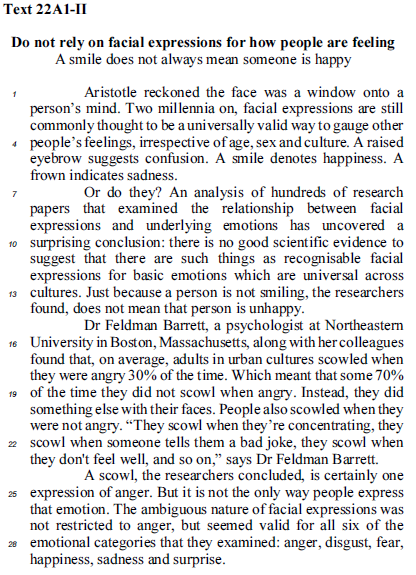
The economist. science & technology. Feb 20th 2020
edition. Internet:
I By asking her pupils to guess the overall sense of the text just from its title, she would be promoting the use of the technique known as skimming.
II Exercises based on the skimming technique would demand her pupils to have a high level of vocabulary.
III If she asks the students to find out the name of the university in which Dr Barret works, they would be making a prediction.
Choose the correct option.
-
A) Only statement I is correct.
B) Only statement II is correct.
C) Only statement III is correct.
D) Only statements I and II are correct.
E) All three statements are correct.
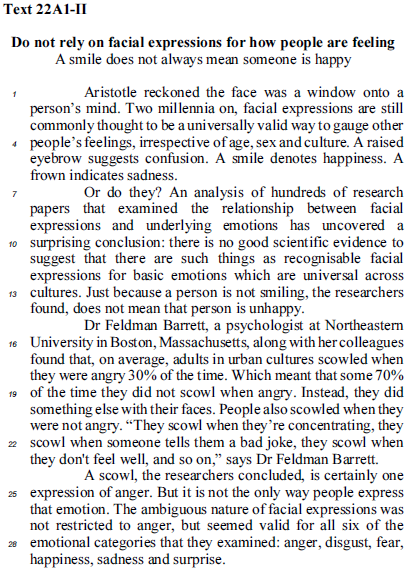
The economist. science & technology. Feb 20th 2020
edition. Internet:
-
A) In line 4, irrespective of can be correctly replaced with intertwined with in terms of meaning.
B) In which are universal across cultures (l. 12 and 13), which refers to basic emotions (l.12).
C) In line 19, the two occurrences of they replace adults in urban cultures (l.17).
D) In line 19, Instead can be correctly replaced with In spite of this in terms of meaning.
E) In But it is not the only way people express that emotion. (l. 25 and 26), it and that refer to anger (l.25).
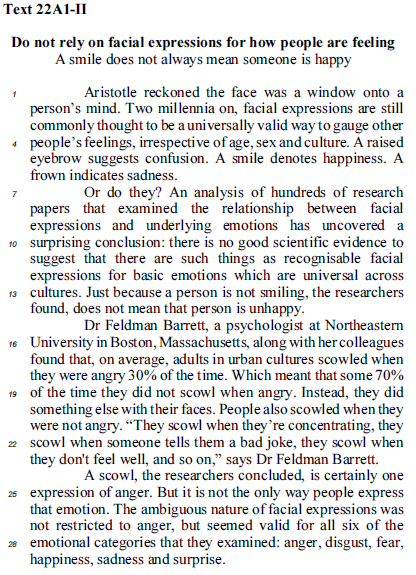
The economist. science & technology. Feb 20th 2020
edition. Internet:
-
A) there is a similarity between the results of the study and Aristotle's opinion.
B) scowling may mean various things when it comes to showing emotions.
C) Dr Barret was the head of the psychology department in which the study was carried on.
D) in 70% of the time they are angry, people do manage to smile.
E) the researchers concentrated their work on the relations between scowling and anger.
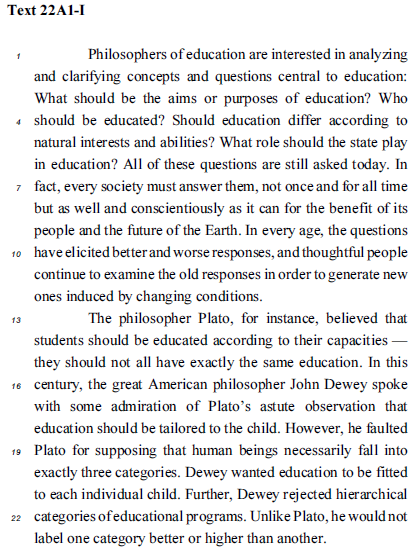
Nel Noddings. Philosophy of education. New York: Routledge, 2018 (adapted).
-
A) are interested in (l.1) inspired in
B) thoughtful people (l. 10) sympathetic people
C) but as well (l.8) however well
D) he faulted Plato (l. 18 and 19) the American criticized Plato
E) he would not label (l. 22 and 23) he did not ought label
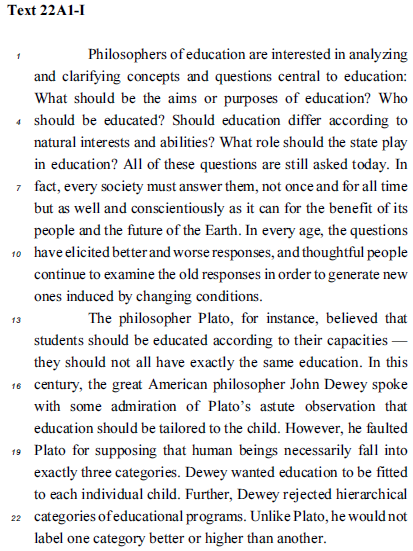
Nel Noddings. Philosophy of education. New York: Routledge, 2018 (adapted).
-
A) oppose two different modern views of education.
B) argue for Plato's three categories of human beings.
C) explain some crucial concepts in philosophy and education.
D) show how philosophical views change depending on time and place.
E) introduce the field known as phylosophy of education and some of its concerns.
Concerning the text presented above, judge the following items.
The authors claim that voters attitudes towards the economic situation at the time would lead to them identifying with candidates from traditional political parties.
Concerning the text presented above, judge the following items.
The article presents data from a survey that pointed to optimism about Brazils economic situation.
Concerning the text presented above, judge the following items.
According to the authors, unemployment in Brazil, at the time of publication, affected all gender and racial profiles equally.
Concerning the text presented above, judge the following items.
When the article was published, unemployment rates in Brazil had been going down.
Concerning the text presented above, judge the following items.
It can be concluded from the text that job creation was a priority for many Brazilian voters, in 2018.


